15 Books Published by Lexington Books on AALBC — Book Cover Collage
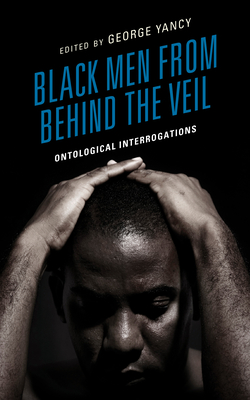 Black Men from behind the Veil: Ontological Interrogations
Black Men from behind the Veil: Ontological Interrogations
by George YancyLexington Books (Jan 14, 2022)
Read Detailed Book Description
Black Men from Behind the Veil bears witness to anti-Black male violence and does so from the perspective of Black male scholars who disclose their fears and what it means to suffer as Black men, courageously marking the deep material, institutional, and epistemic structures that amplify that fear and suffering.
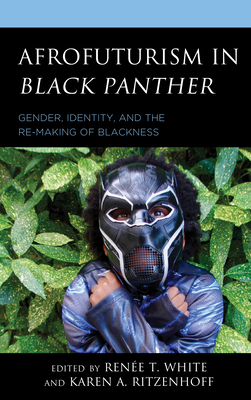 Afrofuturism in Black Panther: Gender, Identity, and the Re-Making of Blackness
Afrofuturism in Black Panther: Gender, Identity, and the Re-Making of Blackness
by Khadijah Z. Ali-ColemanLexington Books (Aug 30, 2021)
Read Detailed Book Description
This book examines Black Panther not only as a film grounded in Afro-futurism, but also as an invitation for viewers to think about relevant real-world social questions about identity, liberation, and racial justice, ultimately posing the question of how Black Panther invites a reimagining of Blackness.
 Buddhism and Whiteness: Critical Reflections
Buddhism and Whiteness: Critical Reflections
by George YancyLexington Books (Jul 02, 2021)
Read Detailed Book Description
In this unprecedented book, contributors use Buddhist philosophical and contemplative traditions, both ancient and modern, and deploy critical philosophy of race, and critical whiteness studies, to address the proverbial elephant in the room - whiteness.
 Lucile H. Bluford and the Kansas City Call: Activist Voice for Social Justice
Lucile H. Bluford and the Kansas City Call: Activist Voice for Social Justice
by Sheila Brooks and Clint C. Wilson IILexington Books (Apr 13, 2018)
Read Detailed Book Description
This book examines the journalism of editor and publisher Lucile H. Bluford. Focusing on selections from her writing in the Kansas City Call from 1968 to 1983, it explores how she articulated a Black feminist standpoint and exposed injustices faced by African Americans and women that were otherwise ignored by mainstream media.
 Reading Contemporary African American Literature
Reading Contemporary African American Literature
by Beauty BraggLexington Books (Jun 07, 2016)
Read Detailed Book Description
“Bragg’s new study [Reading Contemporary African American Literature: Black Women’s Popular Fiction, Post-Civil Rights Experience, and the African American Canon] offers support for those wishing to re-examine the incorporation of popular fiction in their classrooms or scholarship. This new analysis of popular fiction places popular fiction alongside historical writing movements, offers feminist approaches to understanding the goals of black women authors’ fiction, and gives scholars a new foundation to build upon. Popular fiction is needed in the classroom and the canon, and would be a welcome addition to scholarly studies. Those interested and working with, or even considering, popular fiction should pick this study up as a framework for analysis.”
—English: Journal of the English Association
 The Fluid Boundaries of Suffrage and Jim Crow: Staking Claims in the American Heartland
The Fluid Boundaries of Suffrage and Jim Crow: Staking Claims in the American Heartland
by Damaris B. HillLexington Books (Jun 03, 2016)
Read Detailed Book Description
The essays in this collection examine instances of racial and gender oppression in the American heartland in the twentieth century and directly engage with the ways in which race, gender, and intersectional identities are remembered, expressed, and contextualized.
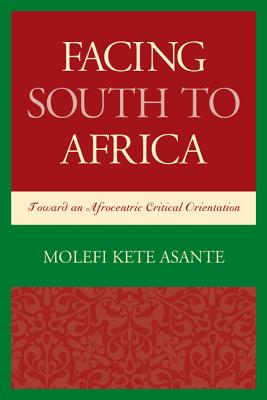 Facing South to Africa: Toward an Afrocentric Critical Orientation
Facing South to Africa: Toward an Afrocentric Critical Orientation
by Molefi Kete AsanteLexington Books (Apr 26, 2016)
Read Detailed Book Description
em>Facing South to Africa is a bold synthesis of the ideas that have made Afrocentric theorists the leading voices of the African renaissance. Written from the vantage point of the philosophical and political discourse that emerged over the past twenty-five years, this is a highly readable and accessible introduction to African social and cultural criticism. Molefi Kete Asante engages in the practice of critical thinking by raising fundamental questions about how Africans view themselves and the world.
Tackling the themes of culture, education, social sciences, the university, politics, African unity, and the prospects for peace in Africa, em>Facing South to Africa is a fresh, daring, and popularizing synthesis of the best critical thought on the issues of modern knowledge. Asante’s plan is to reorient our thinking on Africa by asking questions of Africa and Africans rather than imposing preconceived, external ideas on African issues.
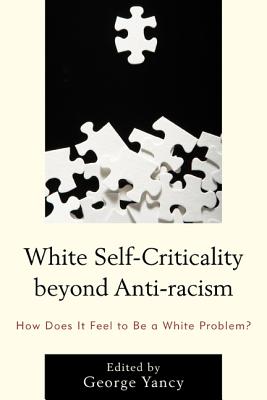 White Self-Criticality beyond Anti-racism: How Does It Feel to Be a White Problem?
White Self-Criticality beyond Anti-racism: How Does It Feel to Be a White Problem?
by George YancyLexington Books (Mar 09, 2016)
Read Detailed Book Description
George Yancy gathers white scholarship that dwells on the experience of whiteness as a problem without sidestepping the question’s implications for Black people or people of color. This unprecedented reversion of the "Black problem" narrative challenges contemporary rhetoric of a color-evasive world in a critically engaging and persuasive study.
 Afrofuturism 2.0: The Rise of Astro-Blackness
Afrofuturism 2.0: The Rise of Astro-Blackness
by Reynaldo Anderson and Charles E. JonesLexington Books (Dec 16, 2015)
Read Detailed Book Description
The ideas and practices related to afrofuturism have existed for most of the 20th century, especially in the north American African diaspora community. After Mark Dery coined the word "afrofuturism" in 1993, Alondra Nelson as a member of an online forum, along with other participants, began to explore the initial terrain and intellectual underpinnings of the concept noting that “AfroFuturism has emerged as a term of convenience to describe analysis, criticism and cultural production that addresses the intersections between race and technology.” Afrofuturism 2.0: The Rise of Astroblackness represents a transition from previous ideas related to afrofuturism that were formed in the late 20th century around issues of the digital divide, music and literature. Afrofuturism 2.0 expands and broadens the discussion around the concept to include religion, architecture, communications, visual art, philosophy and reflects its current growth as an emerging global Pan African creative phenomenon.
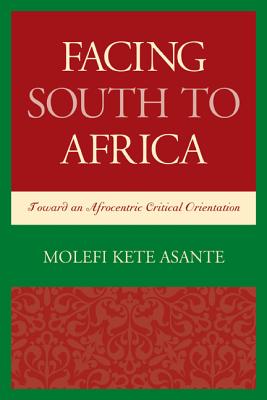 Facing South to Africa: Toward an Afrocentric Critical Orientation (Critical Africana Studies)
Facing South to Africa: Toward an Afrocentric Critical Orientation (Critical Africana Studies)
by Molefi Kete AsanteLexington Books (Aug 20, 2014)
Read Detailed Book Description
Facing South to Africa is a bold synthesis of the ideas that have made Afrocentric theorists the leading voices of the African renaissance. Written from the vantage point of the philosophical and political discourse that emerged over the past twenty-five years, this is a highly readable and accessible introduction to African social and cultural criticism. Molefi Kete Asante engages in the practice of critical thinking by raising fundamental questions about how Africans view themselves and the world. Tackling the themes of culture, education, social sciences, the university, politics, African unity, and the prospects for peace in Africa, Facing South to Africa is a fresh, daring, and popularizing synthesis of the best critical thought on the issues of modern knowledge. Asante’s plan is to reorient our thinking on Africa by asking questions of Africa and Africans rather than imposing preconceived, external ideas on African issues.
 Pursuing Trayvon Martin: Historical Contexts and Contemporary Manifestations of Racial Dynamics
Pursuing Trayvon Martin: Historical Contexts and Contemporary Manifestations of Racial Dynamics
by George YancyLexington Books (May 15, 2014)
Read Detailed Book Description
On February 26, 2012, seventeen-year-old African American male Trayvon Martin was shot and killed by George Zimmerman, a twenty-eight-year-old white Hispanic American male in Sanford, Florida. Zimmerman killed Martin in a gated community. Pursuing Trayvon Martin: Historical Contexts and Contemporary Manifestations of Racial Dynamics, featuring a new preface by editors George Yancy and Janine Jones written after the June 2013 trial, examines the societal conditions that fueled the shooting and its ramifications for race relations and violence in America. Pursuing Trayvon Martin: Historical Contexts and Contemporary Manifestations of Racial Dynamics attempts to capture what a critical cadre of scholars think about this potentially volatile situation in the moment. The text addresses issues across various thematic domains that are both broad and relevant. Pursuing Trayvon Martin is an important read for scholars in the fields of philosophy, criminal justice, history, critical race theory, political science, critical philosophies of race, gender studies, sociology, rhetorical studies, and for anyone hungry for critical ways of thinking about the Trayvon Martin case.
 Jazz Griots: Music as History in the 1960s African American Poem
Jazz Griots: Music as History in the 1960s African American Poem
by Jean-Philippe MarcouxLexington Books (Jun 21, 2012)
Read Detailed Book Description
To the endless questions, theoretical statements, and hypotheses about how Black poets transcribe jazz into the poetic format, this book, while providing a different approach to reading jazz poetry, attempts to answer the question, why do Black poets revert to jazz for poetic material. This book’s answer is because jazz is Black History ritualized and performed, and jazz performance is storytelling.
 The Center Must Not Hold: White Women Philosophers on the Whiteness of Philosophy
The Center Must Not Hold: White Women Philosophers on the Whiteness of Philosophy
by George YancyLexington Books (Oct 10, 2011)
Read Detailed Book Description
The Center Must Not Hold: White Women Philosophers on the Whiteness of Philosophy functions as a textual site where white women philosophers engage boldly in critical acts of exploring ways of naming and disrupting whiteness in terms of how it has defined the conceptual field of philosophy. Within this text, white women philosophers critique the field of philosophy for its complicity with whiteness as a structure of power, as normative, and as hegemonic.
In this way, the authority of whiteness to define what is philosophically worthy is seen as reinforcing forms of philosophical narcissism and hegemony. Challenging the whiteness of philosophy in terms of its hubristic tendencies, white women philosophers within this text assert their alliance with people of color who have been both marginalized within the field of philosophy and have had their philosophical and intellectual concerns and traditions dismissed as particularistic. Aware that feminist praxis does not necessarily lead to anti-racist praxis, the white women philosophers within this text refuse to telescope as a site of critical inquiry one site of hegemony (sexism) over another (racism). As such, the white women philosophers within this text are conscious of the ways in which they are implicated in perpetuating whiteness as a site of power within the domain of philosophy. Framed within a philosophical space that values the multiplicity of philosophical voices and driven by a feminist framework that valorizes de-centering locations of hegemony, interdisciplinary dialogue, and transformative praxis,
The Center Must Not Hold refuses to allow the white center of philosophy to masquerade as universal and given. The text de-centers various epistemic and value orders that are predicated upon maintaining the center of philosophy as white. The white women philosophers who contribute to this text explore ethics, epistemology, aesthetics, taste, the nature of a dilemma, questions of the secularity of philosophy, perception, discipline-based values around how to listen and argue, the crucial role that social location plays in the continued ignorance about the reality of oppression and privilege as these relate to the subtle forms of white valorization and maintenance, and more. Those interested in critical race theory and critical whiteness studies will appreciate how the contributors have linked these areas of critical inquiry within the often-abstract domain of philosophy.
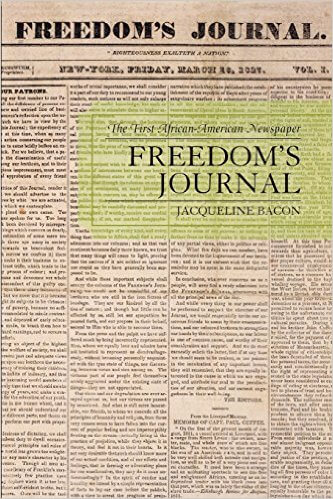 Freedom’s Journal: The First African-American Newspaper
Freedom’s Journal: The First African-American Newspaper
by Jacqueline BaconLexington Books (Feb 09, 2007)
Read Detailed Book Description
On March 16, 1827, Freedom’s Journal, the first African-American newspaper, began publication in New York. Freedom’s Journal was a forum edited and controlled by African Americans in which they could articulate their concerns. National in scope and distributed in several countries, the paper connected African Americans beyond the boundaries of city or region and engaged international issues from their perspective. It ceased publication after only two years, but shaped the activism of both African-American and white leaders for generations to come.
A comprehensive examination of this groundbreaking periodical, Freedom’s Journal: The First African-American Newspaper is a much-needed contribution to the literature. Despite its significance, it has not been investigated comprehensively. This study examines all aspects of the publication as well as extracts historical information from the content.
Related Information
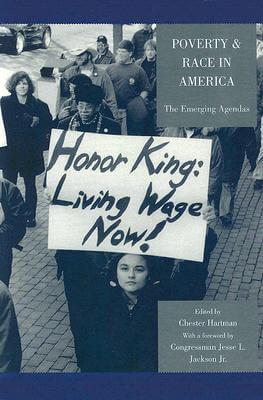 Poverty & Race In America: The Emerging Agendas
Poverty & Race In America: The Emerging Agendas
by Chester HartmanLexington Books (Mar 02, 2006)
Read Detailed Book Description
Collected in this volume are the best articles and symposia from Poverty & Race, the bimonthly newsletter journal of The Poverty & Race Research Action Council (PRRAC), a Washington, DC-based national public interest organization founded in 1990. Poverty & Race in America includes over six-dozen works originally published between mid-2001 and 2005, many of which have been updated and revised. The contributors represent the best of progressive thought and activism on America’s two most salient, and seemingly intractable, domestic problems-race and poverty. Divided into topical sections, this volume considers the issues of race, poverty, housing, education, health, and democracy. Poverty & Race in America is especially concerned with the links between and among these areas, both for purposes of analysis and policy prescriptions. Featuring a foreword by Congressman Jesse L. Jackson, Jr., this edited collection will be of great interest to policy makers and human rights activists and hopefully stimulate creative thought and action to bring an end to racism and poverty.
